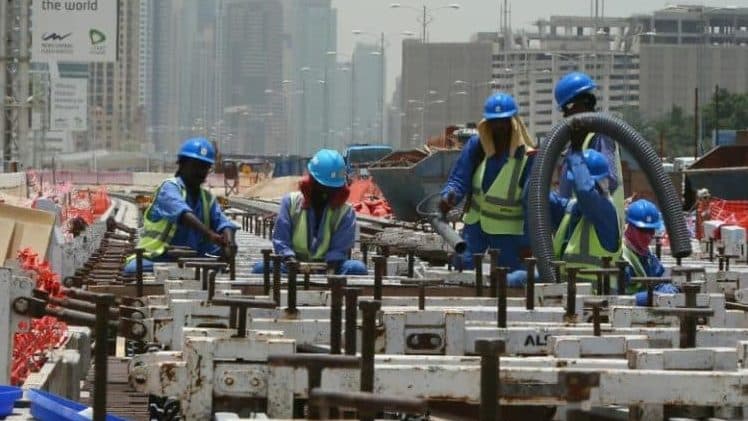
The State Bank of Pakistan, in an announcement last week, reported a fall in remittances during the first seven months of the fiscal year (July 2016 to January 2017). The drop of 2% in remittance amounts was due to the economic slowdown in the Gulf States as a result of various economic and political issues.
The war in Yemen and an excessive supply of petrochemicals in the global market have resulted in an attempt by the GCC (Gulf Cooperation Council) to hit back at the economy with an economic and political boost at the same time for maximum impact. This maneuver is expected to work this year with the GCC economies experiencing some sort of recovery soon.
The Pakistani government is very eager for this turnaround in Gulf fortunes to happen since about 65% of the economy’s remittances are from the Gulf States, most importantly Saudi Arabia and the United Arab Emirates. However, with the former having reduced oil extraction in their territory and prices having gone up to $50 per barrel, the World Bank estimates that economic growth will be slow – less than 2% to be exact. Jobs are also dependent on the state of affairs prevailing with Yemen.
This development is particularly bad for the millions of migrant workers that make up at least 75% of the population in the area. Thousands of these workers had to go back to their respective homelands without payment for their work and with only a bad experience.
Further, the Gulf States have also resorted to “temporary non-payment” to contractors coupled with price hikes and tax impositions, the likes of which Gulf State citizens have never experienced before.
Pakistani workers in Saudi Arabia are comparatively safer in their current jobs because of the mix of white and blue collar workers as compared to those in the tertiary sector, infrastructure development, or domestic jobs. The workers who have come back to Pakistan have mostly been from the construction industry so far which has been hit the worst as governments of Gulf States halted public sector projects.
Gulf States have also obviously seen a decline in their natural gas and oil resources and thus have attempted to shift away from being dependent solely on these markets for their revenues. Dubai already has a booming tourist industry. This will result in a gradual move away from workers for extraction of these resources to other industries.
Another reason for the decline in demand for migrant workers will be the shift from labor-intensive firms to capital-intensive firms and countries like Pakistan, Bangladesh, India, Philippines and others will see their remittances fall too. These machines will obviously be preferred over migrant workers who have to be paid for health and family visits and other necessities.
The Saudi Vision 2030, a future economic plan, holds many instructions for the Pakistani government on how and for what industries they should train their manpower in the future. This also holds for the other Gulf States as they are looking to Saudi Arabia’s plan to make their own.
The Gulf States are very important for Pakistan where migrant laborers are concerned. These states are of significant importance in deciding the future skills of the average laborer in Pakistan. The most important step of course would be to improve the language skills of these workers. Fluency in at least English will greatly improve their job prospects.
However, it is not just the skills of the workers that have to change but also the attitude of the government in Islamabad. Cheaper, better-trained workers must be made available but nepotism and lethargy of the officers in Islamabad needs to be checked as well. If this continues, Pakistan is in danger of having its workers banned by these Gulf States the way Kuwait has already done.
Pakistan relies greatly on its labor export for vital foreign exchange reserves. Without this, Pakistan loses out significantly on many opportunities as well as risks the inevitable growth in the unemployment rate.